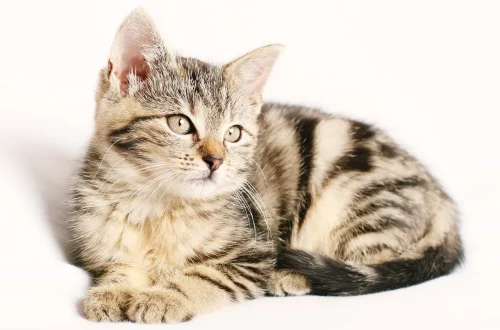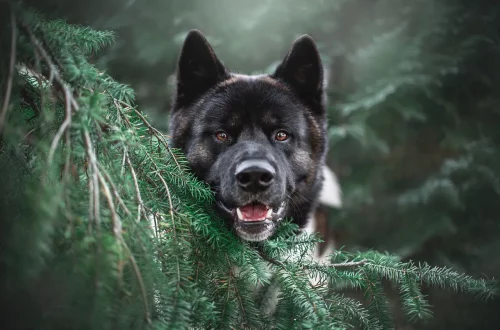
Understanding the Cost of Owning a Maine Coon Cat
Owning a pet is a significant commitment that brings both joy and responsibility. Among the various breeds, the Maine Coon cat stands out due to its affectionate nature, striking appearance, and large size. Known for their friendly demeanor and playful spirit, Maine Coons are often dubbed the “gentle giants” of the feline world. However, the decision to welcome one into your home should not be taken lightly, as it involves a deep understanding of the associated costs.
The financial implications of owning a Maine Coon extend beyond the initial adoption fee. Prospective owners must consider ongoing expenses such as food, grooming, healthcare, and other miscellaneous costs that arise throughout the cat’s life. Additionally, the Maine Coon’s unique needs and characteristics may influence these costs, making it essential to be well-informed before making a commitment.
In this article, we will explore the various facets of owning a Maine Coon cat, providing you with a comprehensive understanding of the financial responsibilities involved. By delving into each aspect of ownership, we aim to equip potential cat parents with the knowledge needed to make an informed decision about welcoming a Maine Coon into their lives.
Initial Costs of Acquiring a Maine Coon
Acquiring a Maine Coon cat involves several initial costs that potential owners should be aware of. First and foremost is the adoption or purchase fee. Depending on whether you choose to adopt from a shelter or buy from a breeder, prices can vary significantly. Adoption fees can range from $100 to $200, while purchasing from a reputable breeder may cost anywhere from $800 to over $2,000, depending on the cat’s lineage and the breeder’s reputation.
In addition to the initial fee, there are other upfront expenses to consider. Essential supplies such as a litter box, scratching post, food and water dishes, and toys are necessary for your new feline friend. These items can collectively cost between $100 to $300. It’s also advisable to invest in quality cat food that meets the nutritional needs of Maine Coons, which may cost around $30 to $50 per month.
Furthermore, new pet owners should not overlook the importance of veterinary care. Initial vaccinations, spaying or neutering, and a comprehensive health check-up are vital for ensuring the long-term health of your Maine Coon. These veterinary expenses can add up to approximately $200 to $500, depending on your location and the specific services provided.
In summary, the initial costs of acquiring a Maine Coon can be substantial. While it is important to consider these expenses, understanding the commitment you are making is crucial in ensuring a happy and healthy environment for your new pet.
Ongoing Expenses: Food and Grooming
Once you have welcomed a Maine Coon into your home, ongoing expenses will become a regular part of your budgeting. Food is one of the most significant recurring costs associated with pet ownership, and Maine Coons have specific dietary needs that can impact your expenses.
Maine Coons are large cats, often weighing between 10 to 25 pounds, and they require a diet rich in protein and essential nutrients to support their growth and overall health. High-quality cat food can be more expensive than standard options, with costs ranging from $30 to $70 per month, depending on the brand and dietary requirements. Additionally, you may need to adjust portions based on your cat’s age, size, activity level, and overall health.
Grooming is another essential aspect of Maine Coon care that can incur costs. They have long, thick fur that requires regular brushing to prevent matting and reduce shedding. While many owners choose to groom their cats at home, investing in grooming tools such as brushes and combs can cost around $20 to $50. However, if you prefer to have a professional groomer handle this task, you should budget approximately $50 to $100 per grooming session, which may be necessary every few months.
In light of these ongoing expenses, it is important to plan your budget accordingly. Regular food and grooming are vital for maintaining the health and well-being of your Maine Coon, ensuring that they remain a cherished member of your household.
Healthcare and Preventive Measures
Healthcare is a critical aspect of responsible pet ownership, and Maine Coons may require specific attention due to their unique health considerations. Regular veterinary check-ups, vaccinations, and preventive treatments are essential for keeping your cat healthy and addressing any potential issues early on.
Routine veterinary visits typically occur annually, although kittens may need more frequent check-ups. The cost of these visits can vary widely but generally ranges from $50 to $150 per visit. During these appointments, your veterinarian will perform a health assessment, administer vaccinations, and discuss any concerns you may have about your cat’s well-being.
In addition to routine visits, Maine Coons are prone to certain genetic health issues, including hypertrophic cardiomyopathy (HCM) and hip dysplasia. While not all Maine Coons will develop these conditions, it is wise to factor in potential veterinary expenses related to diagnostic tests and treatments if your cat were to experience health problems. Diagnostic tests can cost anywhere from $100 to $300, and treatments may add further costs depending on the severity of the condition.
Preventive measures, such as flea and tick prevention, heartworm medication, and dental care, are also important components of a comprehensive healthcare plan. These expenses can accumulate over time, with preventive medications averaging around $10 to $30 per month.
Ultimately, investing in your Maine Coon’s health is an essential part of responsible ownership. By prioritizing regular veterinary care and preventive measures, you can help ensure that your beloved pet lives a long, healthy, and happy life.
Miscellaneous Costs: Accessories and Emergencies
In addition to regular expenses associated with food, grooming, and healthcare, there are miscellaneous costs that every Maine Coon owner should consider. These costs can vary widely and may include accessories, pet insurance, and emergency expenses.
Accessories such as scratching posts, cat trees, and toys are essential for keeping your Maine Coon entertained and healthy. Depending on your cat’s preferences, you may spend anywhere from $50 to $200 on various accessories over time. Investing in quality items can enhance your cat’s quality of life and help prevent destructive behavior.
Pet insurance is another consideration for responsible pet ownership. While it is not mandatory, many pet owners choose to invest in insurance to help cover unexpected veterinary costs. Basic plans can start around $20 to $30 per month, while more comprehensive coverage may reach $50 or more. Having insurance can be invaluable in case of emergencies or unforeseen health issues, providing peace of mind to pet owners.
Finally, emergency expenses can arise unexpectedly, and it’s crucial to be prepared for such situations. Whether it’s an injury, sudden illness, or other unforeseen circumstances, having a financial buffer for emergencies can alleviate stress. Depending on the severity of the situation, emergency veterinary visits can cost several hundred to thousands of dollars.
In conclusion, the costs associated with owning a Maine Coon cat extend beyond the initial adoption fee and ongoing care. It’s essential to consider all aspects of ownership, including miscellaneous expenses, to ensure that you are fully prepared to provide a loving and supportive environment for your new feline companion.
Owning a Maine Coon cat can be a rewarding experience, filled with love and companionship. However, understanding the financial responsibilities involved is crucial to ensure a happy and healthy life for your pet. By being informed about the various costs associated with ownership, you can make the best decision for both yourself and your future furry friend.
**Disclaimer:** This article is not intended as medical advice. For any health concerns regarding your pet, please consult with a qualified veterinarian.




